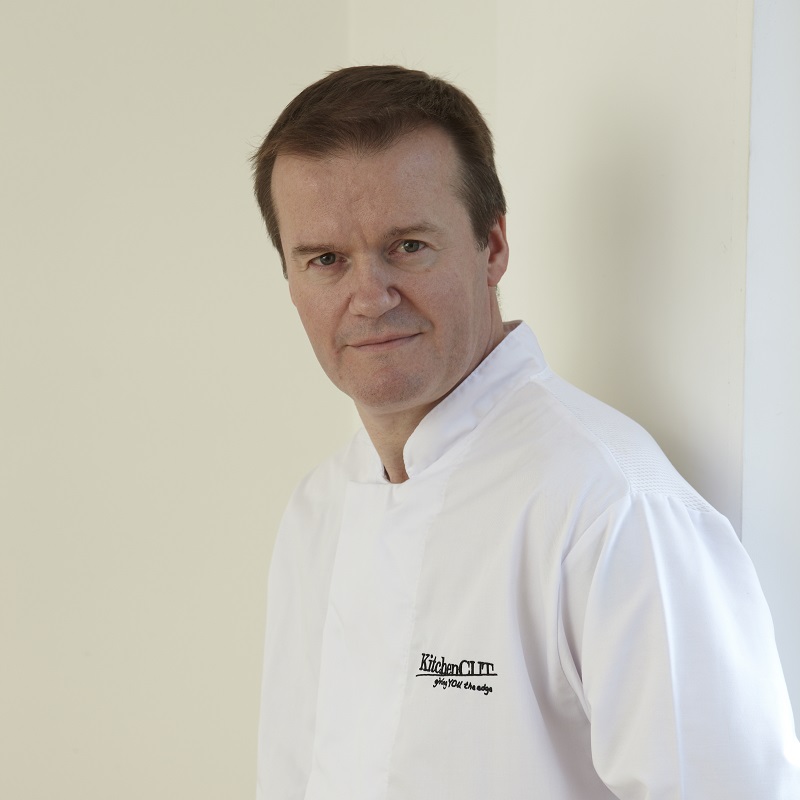
John Wood, Kitchen CUT
Technology looks set to be the hospitality industry’s new best friend as it cautiously feels its way through and out of the Covid pandemic, says John Wood, Co-Founder of Kitchen CUT, which provides management software to the hospitality industry.
Technology is helping the hospitality industry withstand the impact of the Covid pandemic and will provide new opportunities for growth as we move out of the crisis, says food and hospitality consultant John Wood, Co-Founder of Kitchen CUT.
Many restaurants and bars are already using ‘click and collect’ technology and home delivery options to maintain an income stream during lockdowns, and this will continue to be a useful additional revenue stream even when restrictions are lifted, he says.
“Customers are looking for new, more adventurous alternatives to the traditional take away options. Getting organised and set up now means you could take advantage of this new opportunity.”
He says the ‘click and collect’ technology is enabling restaurants to quickly adapt their existing offering for this new market, and that even the simplest pared down menu can be extremely profitable. One local restaurant, for example, has chosen to focus solely on selling high quality wagyu burgers with truffle mayonnaise, requiring only one chef for a few hours and one person to hand over ordered, and yet on the first night it was launched it got 500 orders.
Even fine dining restaurants are finding ways to adapt their offering to meet the needs of the lockdown market, John says, citing Galvin’s, a Michelin starred restaurant which is sending out meals via a courier service.
He says: “Whilst not all products are suitable, it is definitely worth investigating, as I see this as a trend that will continue.”
Restaurants and bars should also consider investing in technology that will enable customers to order from their table when they re-open, partly to help with any continuing social distancing requirements, but mainly because it is just so much more efficient, both for the customer and for the venue.
He says: “I think there will be a move to more table side ordering. Instead of standing five deep at the bar for 20 mins, waving your credit card around and balancing a tray of drinks out to the beer garden, you can just place an order and it comes to your table. That is the future.”
John points out that he recently helped a pub chain client introduce ‘order at table’ technology, who saw a significant increase in consumption per person, even with a reduced capacity space.
Using technology can also help a venue reduce its costs, something that is going to be particularly important in a post-Covid world. John says: “Do you really need to have your menus printed externally, for example, or can you bring that in-house? Why not consider making your menus digital and remove this cost altogether?”
In general the Covid pandemic and ensuing lockdowns are giving hospitality businesses a unique opportunity to take a long hard look at their business, he says, so it is important that they take the time to do that.
He says: “I see this as a great opportunity to re-evaluate your business and understand what you are doing and how you are doing it. Historic information may no longer be relevant - start with a clean slate rather than placing too much faith in old budgets and sales figures.”
A key element to consider is whether you are offering the right format and concept for when lockdown restrictions are lifted. “Ask yourself if your current offering is suitable – is the choice and price of the product correct. Your business may need to be adjusted to meet the demands of a new and different post-Covid market.”
You also need to think about who your customers are, and what they are likely to want in a post-Covid world. “Who are your customers and what do they want? You need to know their preferences, their spending habits, why and how often they will frequent your restaurant.”
John Wood’s Top Tips
1. Use technology to manage your costs and to enhance your customer experience.
2. Don’t be afraid to change your concept. You don’t have to go back and do the same thing as you were doing. Look at it as a completely blank canvas.
3. Analyse all of your costs.


